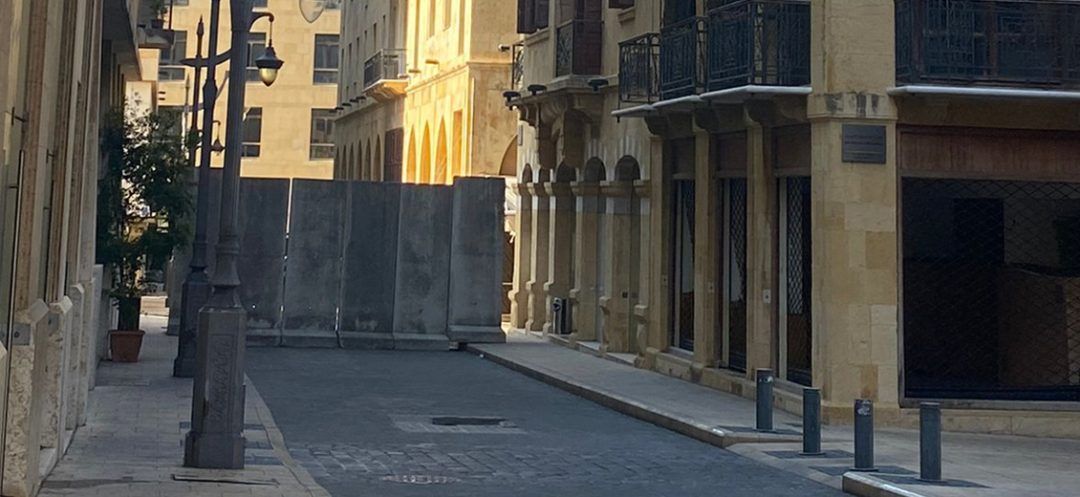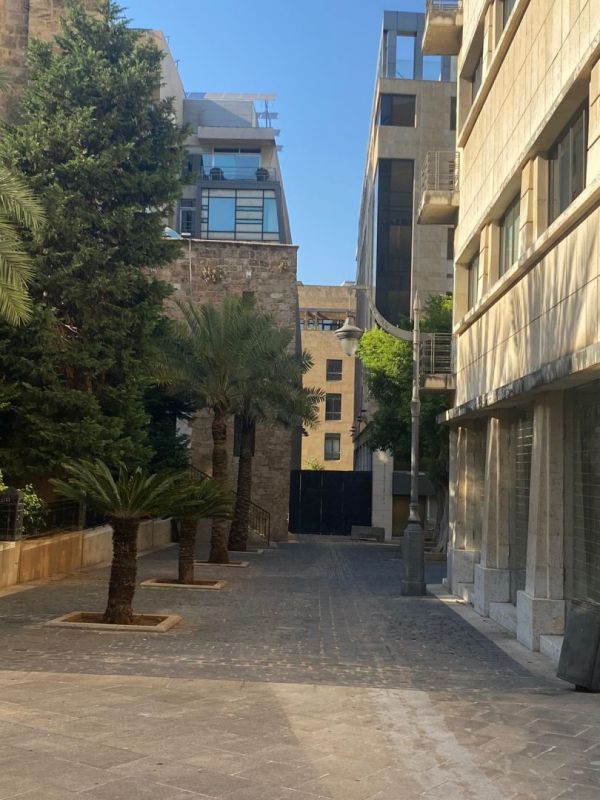
Walking through Beirut’s downtown ghost town feels surreal. Sieged from every angle, what was once a vibrant city, now resembles a prison.
Yet, Downtown Beirut is reviving. New boutiques, cafes, and hotels are emerging, defying all odds, particularly in the shadow of an all-out war looming between Hezbollah and Israel. Some say this is what Lebanon is about. This resilience is seen as quintessentially Lebanese.
Since 2006, downtown Beirut has endured numerous security events: Hezbollah's and allies’ everlasting sit-ins in 2006, the 2019 anti-government protests, the worst economic collapse since the 19th century, the coronavirus pandemic, and the devastating 2020 Beirut port explosion.
At the event of the 2019 protests, massive concrete barricades were erected around parliament and Nejmeh square blocking all access.
However, 5 years later, why are the concrete barriers still there?
Sources at the Internal Security Forces (ISF) told This is Beirut that the matter is within the legislative’s authority and the decision needs to be made from the person who ordered to put the roadblocks in the first place. “We have no information that these barriers will be lift up”, the sources added.
Contacted by This is Beirut, sources at Parliament said that the matter does not fall in their jurisdiction but rather the State’s security, and that they have no knowledge of any intention of these barriers being lift anytime soon. “The matter is political” the source added.
To that effect, a security source told This is Beirut that the matter falls under the jurisdiction of the Internal Security Forces, but it is certain that the barriers should not be permanent. “They can be placed temporarily if necessary for important security reasons,” the source added.
The security source explains that when these barriers were placed, it was for the purpose of maintaining security and order, and the operation was carried out by the Internal Security Forces, with permission from local authorities, either the governor or at the direction of the Minister of Interior.
In response to a question about whether there is any information on the removal of the barriers, the security source says that if shop owners submit a request, it will be taken into consideration and the barriers will definitely be removed.

Previous tenants
“It’s as if they want the heart of Beirut to stop beating”, a previous tenant in Downtown Beirut told TIB. He described the state of the entrapped buildings as “decayed” and “sad to the eye.” "Even if we want to rent offices, we can't. We cannot expect clients to make impossible turns to get to their meeting; it is a hassle for them in winter and in summer alike”. He emphasized the government’s actions as “absurd”, stating that the buildings, shops, restaurants and offices are abandoned. The tenant lamented the fact that these barriers are put in place for "so-called security for parliament." "Why don't they move the Parliament building or move their sessions elsewhere and open all roads?”, the tenant asked.
A mystery?
For his part, Change MP Waddah Sadek told This is Beirut that the area around the Parliament was closed because of the ongoing events in the vicinity. “Despite the election of a new Parliament and the lack of current movement (riots) on the ground, I don't think this is the real reason for these barriers”.
Sadek explained that upon his election, he submitted a lawsuit to that effect. As a response, the Speaker of Parliament Nabih Berri obliged but only partially. Thus, a part of the wall (which citizens called wall of shame) was broken. “The fact remains that the area is still closed and people cannot circulate as they please”, Sadek assured.
“I believe it's a deliberate attempt to stifle the life at the capital. We suggested many solutions along with shop owners and business people in Beirut,” Sadek said, adding: “These people do not want the country to thrive; this is how they want it to be.”
He recalled that, once, the area was very vibrant, but since the closure of the capital, many have lost their livelihoods and their jobs. “Every time they promise to open it fully, they go back on their word. We are trying to push, but obviously, they don't hear what the people want, so it remains a mystery that we are unable to solve,” he concluded.
Biggest retail companies are back
Since 2006, the city's central area has turned into a deserted zone due to prolonged political instability and security measures. The protests during that time have cost the Lebanese economy approximately $70 million per day, totaling $560 million. Businesses in Beirut were severely affected, with many closing their doors to this day. The tourism sector also suffered. However, 144 brands will return to the Souks of Beirut by November 2024
“Mouftah el Chark” boutique is opening a branch in Beirut Souks (Beirut Souks, a major commercial district in Beirut Central District next to Parliament). Asked about what encouraged them to open amidst all crises and the siege in the capital, the operator manager Zeina Nassif told This is Beirut that one of the biggest retail companies is opening its doors which stimulated them to do the same. “On the new year, Beirut Souks will go back to what it was before,” she said joyously.
Read more




Comments